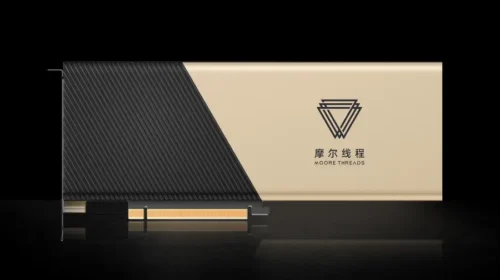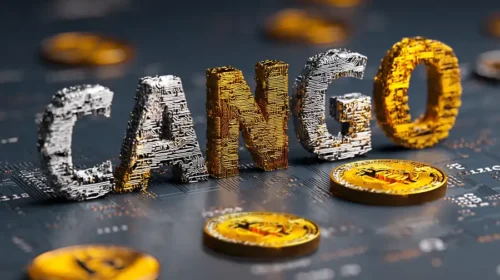Octillion Energy banks on India to power new IPO bid

The EV battery system maker has made significant inroads into India this year, which reportedly include new orders from domestic giant Tata Motors
Key Takeaways:
- Octillion Energy has filed for a Hong Kong IPO, reporting its operating revenue rose 88% in the first four months of this year to 950 million yuan
- The EV battery system maker’s rapid ramp-up of its Indian business has caused a precipitous drop in its gross margin
By Lee Shih Ta
When you’re running out of power in one lane, you quickly shift to another.
That’s a lesson recently learned by Octillion Energy Holdings Inc., an electric vehicle (EV) battery system maker that suffered last year after major customer Wuling Motors canceled some orders for products used in its Mini EV that was fading in popularity. In the face of rapidly dropping sales, Octillion quickly shifted to focus on India, helping it to re-energize its revenue growth in the first four months of the year.
Now, the company hopes its new growth story will attract investors as it files a second time for a Hong IPO, seeking to strike while the iron is hot.
Based in the Eastern Chinese city of Hefei and with offices in both India and the U.S., Octillion designs, manufactures and sells customized EV battery systems, while also providing energy storage solutions and battery management systems. According to third-party data in its listing document filed late last month, it was China’s fourth biggest power battery system supplier last year based on shipments, with 5.1% of the market.
The company has been on quite the roller-coaster ride in recent years. In 2022, it eked out a profit of around 100 million yuan ($14 million), reversing years of losses, riding on the huge success of the Wuling Hongguang Mini EV. But an end to government subsidies last year put the brakes on sales of that vehicle, and also on Octillion’s business. The company’s revenue and profit plunged 43% and 47%, respectively, last year with its profit shrinking to just 53 million yuan.
Riding high in India
But things are turning around for the company with its recent expansion in India. Banking on that business, Octillion’s revenue jumped 88% year-on-year in the first four months of 2024 to 950 million yuan. Its loss for the period also narrowed 23% to around 29.1 million yuan from a year earlier.
By region, its China revenue grew 35% year-on-year in the four months to 530 million yuan. But its India business nearly quadrupled to 390 million yuan from 100 million yuan a year earlier, rising to 41.9% of its revenue pie from a previous 20%.
Octillion attributed the big revenue growth to rising orders from major local clients, especially leading EV makers in India. One of the company’s primary clients in that market is reportedly leading local car brand Tata Motors, whose share of the local EV market reached 60% in the first half of this year.
The same article that reported the Octillion-Tata relationship said Tata Motors’ newly-launched Curvv EV was the carmaker’s first passenger model using Octillion’s battery system, following the system’s earlier incorporation into Tata’s Starbus EV, an electric bus model. Tata Motors also signaled its willingness to increase its buying from Octillion, the report said.
Of Tata Motors’ four EV models unveiled so far, with the exception of Curvv, all use battery systems manufactured by another Tata Group subsidiary, Tata AutoComp. One version of the Curvv is the Indian company’s first passenger vehicle equipped with battery systems made by a Chinese company, triggering discussion among industry watchers.
Some analysts believe Octillion’s battery systems will help to diversify Tata’s supplies and offer better performance and reliability. Curvv models now come with both 55kWh and 45kWh battery systems, with the former supplied by Tata AutoComp and the latter from Octillion.
Despite India’s ambitious manufacturing goals, the country is still very reliant on Chinese-imported EV battery products. It’s worth noting that the Curvv Tata AutoComp system uses 105Ah batteries from another Chinese company, Gotion (002074.SZ), while Octillion’s systems use 15.2Ah batteries from EVE Energy (300014.SZ), another Chinese company.
Tumbling gross margin
Octillion’s IPO documents show its sales of EV battery systems in India soared from 810 in the first four month of 2023 to 12,604 in the same period of this year, up nearly 15 times.
But the explosive growth has yet to translate into improved profitability, and has actually been just the opposite for Octillion. According to the IPO document, its Indian gross margin tumbled from 18.8% in the first four months of 2023 to just 1.3% this year, meaning its operations in the country were barely profitable. Such pursuit of revenue at the expense of margins may help to explain why the company has been mired in losses for years.
Octillion said that gross margin plunge was caused by falling revenue from its higher-margin electric bus business as the Indian government slashed its procurement orders ahead of general elections. In addition, the company’s first passenger EV battery systems have a relatively lower gross margin partly due to a low pricing strategy designed to gain market share, compounded by high air freight expenses to ship batteries from China to India. The company emphasized that costs are typically higher at the beginning of a product’s life cycle as the manufacturer continues to optimize production and sourcing efficiency.
Octillion’s biggest selling point for investors in its latest IPO application might be its official entry into the Indian passenger EV market, which is powered by the country’s large population and fast-growing economy. The Indian government is determined to build the country into a global EV manufacturing hub, aiming to produce 30% of the world’s EVs by 2030 from just 2% now. That could provide a huge opportunity for EV component suppliers like Octillion.
But the Indian EV market also faces obstacles, such as lack of infrastructure, spotty electricity supplies and geopolitical disputes with China. The good news is that Octillion already has two factories in the country and is one of the few suppliers that can manufacture its products locally. Measured by installed capacity, it is already the country’s second biggest supplier of battery electric vehicle (BEV) systems. Its early arrival to the young Indian EV market just might just be the jumpstart Octillion needs to get its latest IPO attempt out of the starting gate.
To subscribe to Bamboo Works free weekly newsletter, click here






